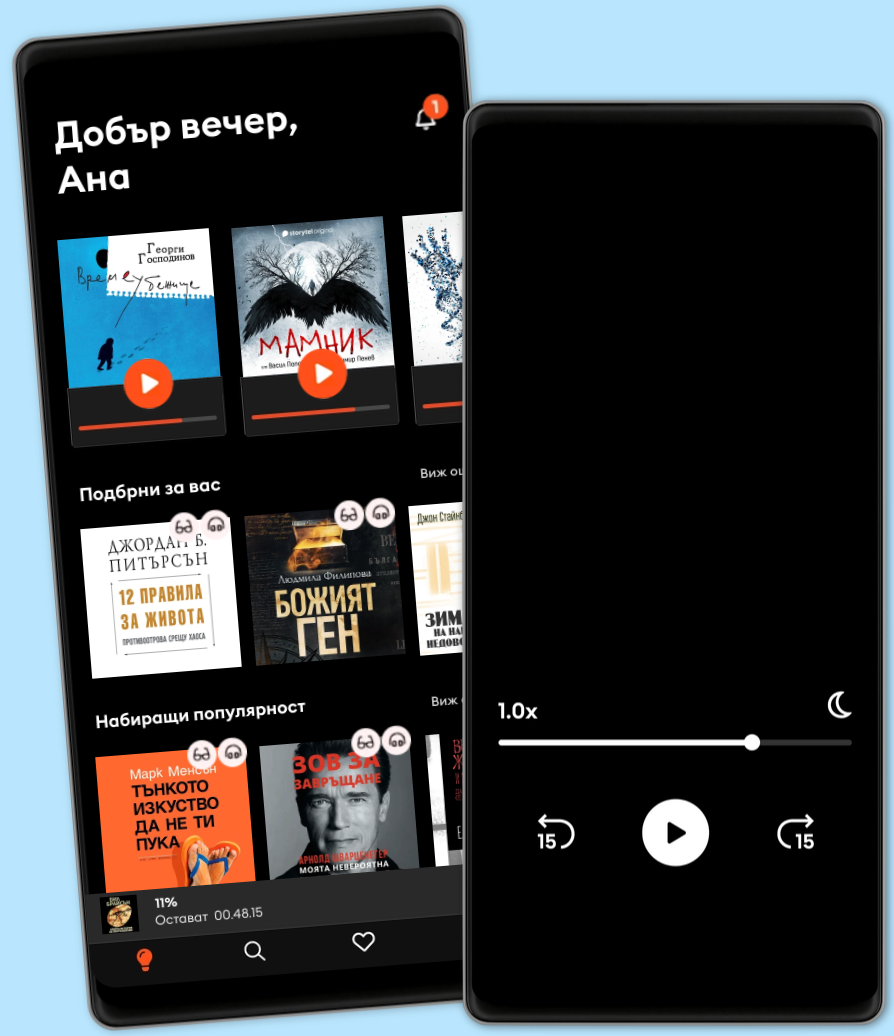Слушайте и четете
Открийте безкрайна вселена от истории
- Слушайте и четете неограничено
- Над 500 000 заглавия
- Ексклузивни и Storytel Original заглавия
- Можете да прекратите лесно по всяко време

What if everything you knew about education was wrong?
- От:
- Издател:
- Език
- Английски
- Format
- Категория
Документални
If you feel a bit cross at the presumption of some oik daring to suggest everything you know about education might be wrong, please take it with a pinch of salt. What if everything you knew about education was wrong? is just a title. Of course, you probably think a great many things that aren't wrong. The aim of the book is to help you 'murder your darlings'. David Didau will question your most deeply held assumptions about teaching and learning, expose them to the fiery eye of reason and see if they can still walk in a straight line after the experience. It seems reasonable to suggest that only if a theory or approach can withstand the fiercest scrutiny should it be encouraged in classrooms. David makes no apologies for this; why wouldn't you be sceptical of what you're told and what you think you know? As educated professionals, we ought to strive to assemble a more accurate, informed or at least considered understanding of the world around us. Here, David shares with you some tools to help you question your assumptions and assist you in picking through what you believe. He will stew findings from the shiny white laboratories of cognitive psychology, stir in a generous dash of classroom research and serve up a side order of experience and observation. Whether you spit it out or lap it up matters not. If you come out the other end having vigorously and violently disagreed with him, you'll at least have had to think hard about what you believe. The book draws on research from the field of cognitive science to expertly analyse some of the unexamined meta-beliefs in education. In Part 1; 'Why we're wrong', David dismantles what we think we know; examining cognitive traps and biases, assumptions, gut feelings and the problem of evidence. Part 2 delves deeper - 'Through the threshold' - looking at progress, liminality and threshold concepts, the science of learning, and the difference between novices and experts. In Part 3, David asks us the question 'What could we do differently?' and offers some considered insights into spacing and interleaving, the testing effect, the generation effect, reducing feedback and why difficult is desirable. While Part 4 challenges us to consider 'What else might we be getting wrong?'; cogitating formative assessment, lesson observation, grit and growth, differentiation, praise, motivation and creativity.
© 2015 Crown House Publishing (Е-книга): 9781845909802
Дата на публикуване
Е-книга: 10 юни 2015 г.
Разгледай още от
Другите харесаха също...
- Teaching in the Online Classroom: Surviving and Thriving in the New Normal Doug Lemov
- When Can You Trust the Experts?: How to Tel, Good Science from Bad in Education: How to Tell Good Science from Bad in Education Daniel T. Willingham
- Stories Sell: Storyworthy Strategies to Grow Your Business and Brand Matthew Dicks
- The Success Code: How to Stand Out and Get Noticed John Lees
- Malcolm x - The Man Who Challenged America Eric Johnson
- Influence, New and Expanded: The Psychology of Persuasion Robert B. Cialdini
- A Joosr Guide to... Switch by Chip and Dan Heath: How to Change Things When Change is Hard Joosr
- Instant Manifestation Coaching Sessions & Meditations Your wishes are fulfilled: raise your vibrations, attract the life you want, optimal health wealth abundance love, magic of reality LoveAndBloom
- Range: How Generalists Triumph in a Specialized World David Epstein
- Summary of Joel Schwartzberg's Get to the Point! IRB Media
- Вирусът на паниката: Подкаст на Мадлен Алгафари S01E01 Мадлен Алгафари
4.9
- Глюкозната революция Джеси Инчауспе
4.7
- Мамник - E1 Васил Попов
4.7
- Богат татко, беден татко: Актуализиран за съвременния свят и с 9 нови обучителни раздела Робърт Кийосаки
4.4
- Лейди Гергана Цветелина Цветкова
4.7
- Голям да пораснеш S05E01: Подкаст на Мадлен Алгафари S05Е01 Мадлен Алгафари
4.9
- Градинарят и смъртта Георги Господинов
4.8
- Среднощна роза Лусинда Райли
4.9
- Пътеводител на галактическия стопаджия Дъглас Адамс
4.2
- Подсъзнанието може всичко Джон Кехоу
4.7
- Четвърто крило Ребека Ярос
4.6
- Сайбиевата невеста Боян Боев
4.6
- Четирите споразумения: Толтекска книга на мъдростта Дон Мигел Руис
4.6
- Лейди Гергана 3 Цветелина Цветкова
4.9
- Хиляда сияйни слънца Халед Хосейни
4.9
Избери своя абонамент:
Над 500 000 заглавия
Сваляте книги за офлайн слушане
Ексклузивни заглавия + Storytel Original
Детски режим (безопасна зона за деца)
Лесно прекратявате по всяко време
Unlimited
Най-добрият избор. Открийте хиляди незабравими истории.
1 профил
Неограничен достъп
Избирайте от хиляди заглавия
Слушайте и четете неограничено
Прекратете по всяко време
Unlimited Годишен
12 месеца на цената на 8. Избирайте от хиляди заглавия.
1 профил
Неограничен достъп
9.99 лв./месец
Слушайте и четете неограничено
Прекратете по всяко време
Family
Споделете историите със семейството или приятелите си.
2 профила
Неограничен достъп
Потопете се заедно в света на историите
Слушайте и четете неограничено
Прекратете по всяко време
Български
България